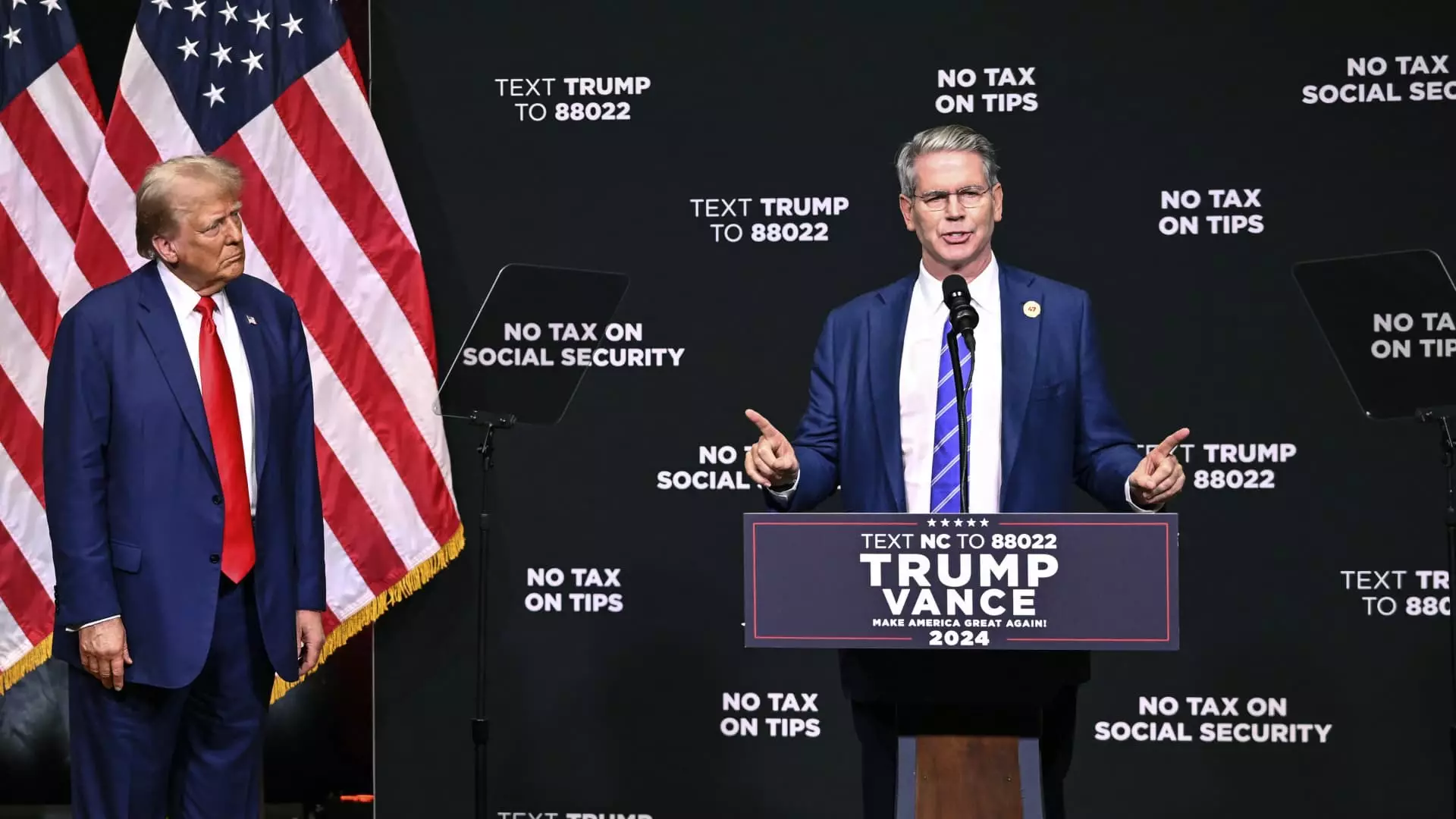The recent announcement of Scott Bessent as President-elect Donald Trump’s nominee for Treasury Secretary reveals much about the incoming administration’s economic priorities. Bessent, a prominent hedge fund executive and founder of Key Square Group, embodies the fusion of financial expertise and political loyalty that Trump seeks to implement within his economic team. As the nomination unfolds, various elements of Bessent’s background, the context of his appointment, and the potential implications for U.S. economic policy warrant consideration.
At 62 years old, Scott Bessent brings significant experience from the finance sector to the Treasury Department. His proposed role marks a critical turning point, as he will oversee fiscal management at a time of rampant national debt and a complex economic landscape. With U.S. debt surpassing $36 trillion and deficits projected to near $2 trillion by fiscal 2025, Bessent’s background could lend crucial insights into navigating these financial waters. Trump has characterized Bessent as “one of the World’s foremost International Investors,” emphasizing his strategic acumen—a perspective that resonates deeply in a climate hungry for market-driven solutions.
Bessent’s approach aligns closely with Trump’s economic vision, particularly in terms of fostering American manufacturing and promoting energy independence. The proposed treasury secretary has been known for advocating a mix of gradual tariffs and deregulation, policies that echo Trump’s own preferences. This synergy suggests a concerted effort to invigorate the U.S. economy, focusing on domestic growth while grappling with the challenges posed by growing trade imbalances.
In addition to his financial prowess, Bessent’s philanthropic endeavors add another layer of complexity to his nomination. His affiliations with prestigious institutions such as Yale University and the Rockefeller University illustrate a commitment to social responsibility that could enhance his public image. However, this past professional association with George Soros, known for his progressive views, may invite scrutiny from critics who question Bessent’s alignment with Trump’s platform. Nevertheless, Trump has expressed confidence in Bessent’s commitment to support policies aimed at bolstering U.S. competitiveness.
The juxtaposition of Bessent’s previous connections to Soros and the stark conservative motivations of the Trump administration raises crucial concerns about loyalty and consistency within the cabinet. There is an ongoing debate about the extent to which past associations influence current policy decisions, particularly in a treasury role that demands allegiance to the administration’s agenda.
Bessent’s selection comes amidst a complex landscape of advisors and contenders for key economic positions. Speculation has swirled around potential appointments, including a rumored pathway for former Federal Reserve official Kevin Warsh to transition into a significant role, perhaps leading the Federal Reserve itself. This dynamic could reshape the contours of U.S. monetary policy, particularly if Bessent plays a pivotal role in managing interdepartmental collaboration.
While supporters hail Bessent’s financial insight, there are dissenting voices within Trump’s circle. Some, including influential figures like Elon Musk, have proposed alternative candidates, signaling potential fractures within Trump’s economic team. This discord may reflect broader concerns about the rigidity of tariffs and trade policies that have become central to Trump’s economic narrative.
As Bessent prepares to take on the mantle of Treasury Secretary, the implications of his appointment suggest a strategic shift aimed at revitalizing American economic foundations. His blend of expertise, advocacy for deregulation, and philanthropic involvements positions him uniquely for this role. However, the realities of governance will test his capacity to unify varying economic factions while addressing looming fiscal challenges.
Trump’s decision to nominate Bessent symbolizes both a continuity of strategy and an acknowledgment of the complexity involved in economic management at a national level. Thus, the unfolding narrative around Bessent’s nomination not only highlights individual qualifications but also reflects the overarching ambitions of the Trump administration as it confronts a host of economic dilemmas—both old and new.

